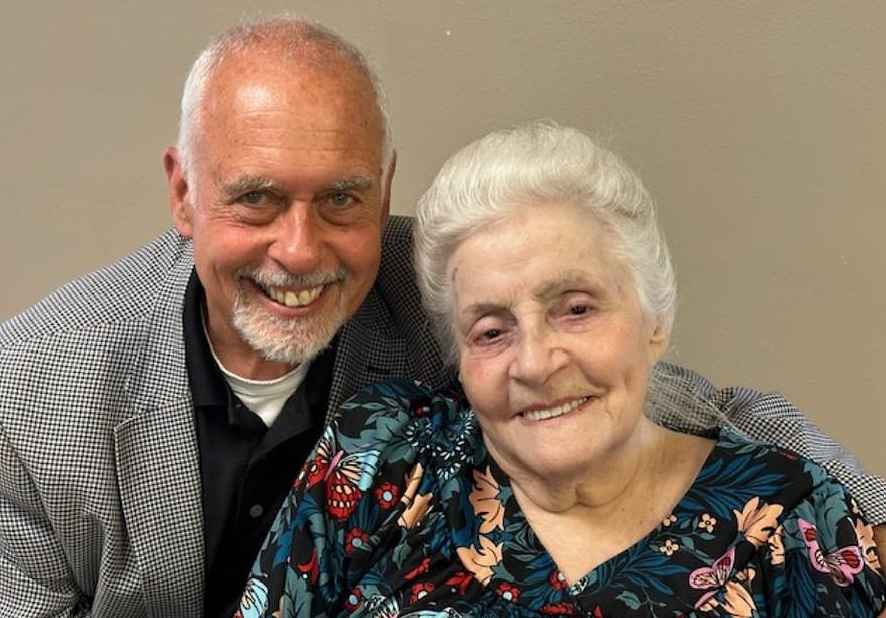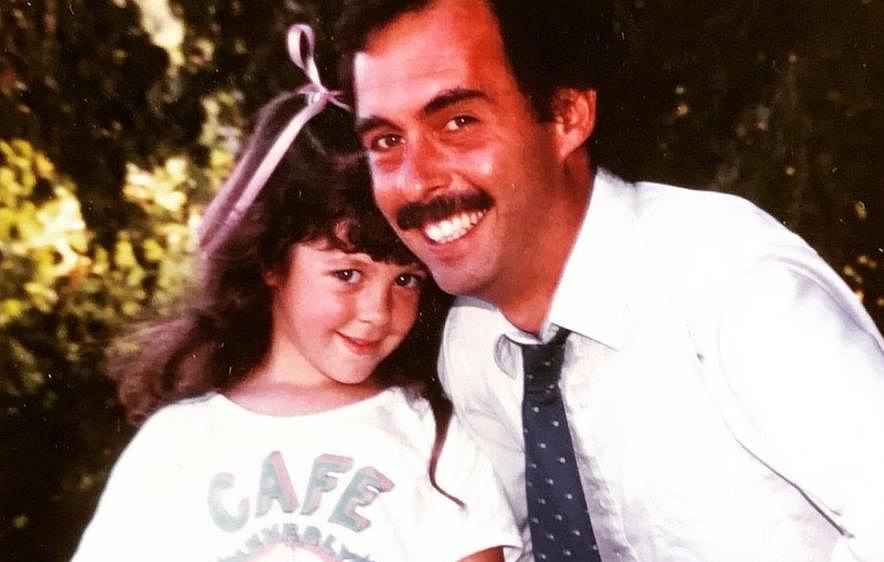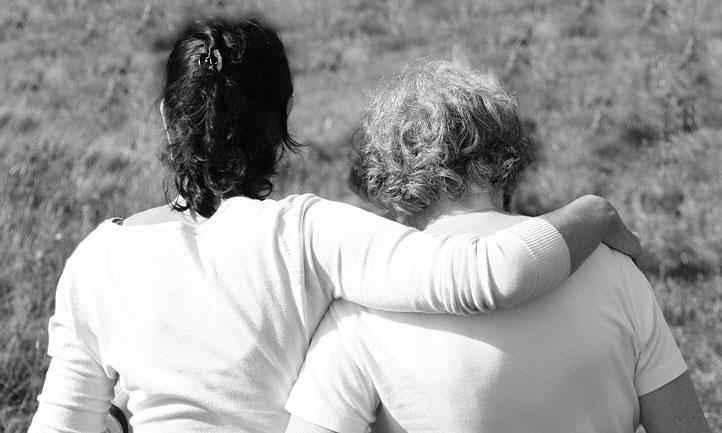






See listing of Recent and Most Popular articles on the Home Page
Connections
Category: Life Events / Topics: Advice, Guidance & Mentoring • Circumstances, Life Events • Comfort & Consolation • Communication • Coping • Dying and Death • Loss & Grieving • Love • Optimal Aging • Relationships
You Will Get it Wrong . . . But You Won't Make it Worse
by Cariad Lloyd / The Guardian
Posted: January 27, 2023
16 ways to talk to people who are grieving…
Editor's Note: By this time in our lives dealing with grief is nothing new, but it never seems to get any easier. So, when I saw Cariad Lloyd's article from The Guardian, I thought it provided some very helpful insights. The article is itself an excerpt from a new book by Lloyd, You Are Not Alone. What follows is a very brief ouline with a link at the bottom of the page that you can follow to read the full article abd get information about the book.
Comedian Cariad Lloyd has spoken to hundreds of bereaved people for her award-winning series Griefcast and a new book on dealing with loss. She shares the lessons she has learned
‘So, where do your parents live?” Um … Your heart pauses for a second. You clench your drink. You take a breath in … Oh, they’re still looking at you – you haven’t said anything yet. So … yeah … Should you go into it? Where are you? Should you lie? How bad is today? Can you speak the truth without your voice cracking? Are they in the club? Would they notice if you ran away now? Yeah, so … It’s been too long. Just say something. Just start with the truth.
“Er, yeah. My mum lives in London.”
“And your dad?” (ALERT: You are in that conversation, this is not a drill. There’s nowhere left to go now.)
“Oh, um, he’s – yeah, he’s dead. He died when I was 15.”
“Oh, right. Oh, sorry. Erm, I didn’t know.”
Awkward pause.
“Ha, that’s OK it’s not your fault.”
“Ha! No! It isn’t!”
“You didn’t kill him!”
Awkward pause.
“Ha ha, no. Well, thanks Cariad, but I have to go away from you now. You’ve reminded me of my own mortality and I don’t like it.”
Scene.
Cariad exits the bar feeling a little more griefy than she did earlier, and weirdly guilty about upsetting someone for bringing up her dead dad, who she didn’t actually bring up.
Curtain.
. . .
You don’t have to be in the club to know that we aren’t great at talking about death. The mere mention of the word makes shoulders tense, stomachs gurgle and palms sweat. I have seen people tie themselves in physical knots to avoid grief coming up in light conversation.
The social awkwardness we feel when talking about death comes, unsurprisingly, from a place of fear. That might be a fear of upsetting a griever, fear of not saying the “right” thing or making their day worse than it already is. And this leads to people avoiding the conversation, changing the subject, saying nothing at all (so weird), or making the sort of blundering, ill-thought-through comments that a griever has to get adept at handling. We will all die; we all know someone who has died – shouldn’t we have got good at talking about it by now?
. . .
It’s OK to find it hard to talk about death. It’s OK to feel frightened or nervous. It’s OK to get it wrong. What matters is that you try. We need to get better at being uncomfortable, at not knowing what to say and admitting that we’re scared. It isn’t easy to help someone in grief. But only when we attempt (and possibly fail) to help, will we learn what’s needed.
Here’s a small and unfinished and by no means definitive (remember: all griefs are different) map to lead you and the person you love through the maelstrom of grief.
[We'll tease you here with the headers for the 16 key points Llyod is making. Following he link at the bottom of the page to get the full story.]
You will get it wrong. .
You can’t make it worse
So, just try …
Your grief is not their grief
Don’t ask – do
You’re a supporting role – not the lead
How are you today?
Contact them
Be OK being ignored
You don’t need all the details
Grief looks different every time
Suicide
Estrangement
Before they’ve died
Be there for the long haul
Don’t give up …
On them. On hope for the future, on the idea that one day it will get easier. Stay fast if you can. They may be in shock. They may take years to realise how much it affected them. You can’t save them, you can’t fix them, but you can let it be known that you care. There is no escaping the empty tunnel you’re both walking into – just remember only you can see the light at the end of it. They can’t yet. Keep walking.
You Are Not Alone by Cariad Lloyd is published by Bloomsbury on 19 January.
Read the full article on The Guardian, with more information about the book.
Search all articles by Cariad Lloyd
Posted: January 27, 2023 Accessed 508 times
![]() Go to the list of most recent Connections Articles
Go to the list of most recent Connections Articles
![]() Search Connections (You can expand the search to the entire site)
Search Connections (You can expand the search to the entire site)
![]() Go to the list of Most Recent and Most Popular Articles across the site (Home Page)
Go to the list of Most Recent and Most Popular Articles across the site (Home Page)
 Loading requested view...
Loading requested view...
